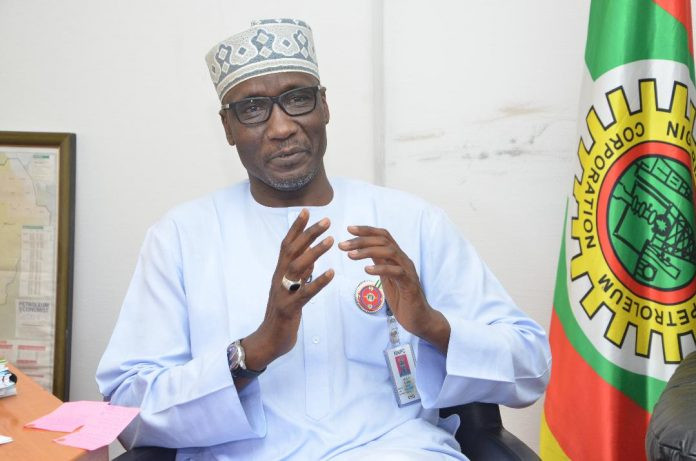The Nigerian National Petroleum Company (NNPC) Limited has urged Nigerians to avoid panic buying as he assured them that there is enough petrol in stock.
NNPC Group Managing Director, Mele Kyari, who addressed journalists in Abuja on Wednesday, March 2, shortly after a meeting with the National Union of Petroleum and Natural Gas Workers (NUPENG), Petrol Tanker Drivers (PTD), Depot and Petroleum Marketers Association of Nigeria (DAPMAN) and Major Oil Marketers Association of Nigeria (MOMAN), disclosed that there is 1.7bn litres of petrol in stock and the country has the capacity to load out trucks excessively from all depots to fill the supply gap facilitated by panic buying.
Kyari further stated that people should buy what they need.
He said:
“There is no shortage in the country. What you see with the queues is cars taking more than 10 to 15 minutes to be fully serviced and that will cause them unnecessary stress that you are seeing.
“So, people should buy what they need.
“We are assuring you that we have an adequate supply on the ground to meet everybody’s needs and demands, but we sincerely apologise for the ongoing stress that must have caused Nigerians, but we will get out of this very soon.
“We would like to assure Nigerians that we have an adequate supply of PMS, also known as petrol.
“Currently, we have over 1.7 billion litres of PMS in our hands both in marine and on land.
“This also means now that we have the capacity to load out excessively from all depots. We have put in place a process on the ground where 24 hours loading is taking place in all depots where we have petrol.
“This will ensure that scarcity created by panic buying, which is what we see in the fuel stations today, will now be freed so that normalcy will return.
“Typically in situations like this, people go to the fuel stations and buy more than what they need, and this is what additional supply will resolve. I am very sure that very soon, we will see the relief on this.
“If you go to the fuel station, only buy what you need because we have substantial and significant supply.”
By Feranmi Okuku












